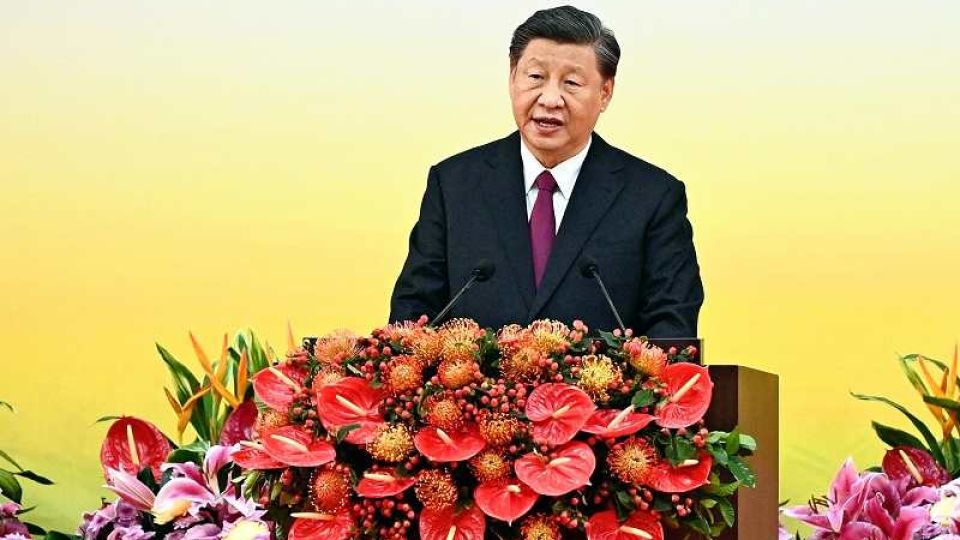September 1, 2022
BEIJING — Chinese President Xi Jinping has in all likelihood gained consensus from other senior party members to allow him to extend his administration into an unprecedented third term, according to sources.
Xi, who is also the general secretary of the Chinese Communist Party, exchanged opinions in August with incumbent party leaders and elders about personnel affairs for the leadership, according to sources connected to the CCP.
Word coming out of those exchanges at places such as the summer resort of Beidaihe in Hebei Province is that there was no strong opposition to Xi continuing his administration. The reason being that the CCP is seeking party unity in light of prolonged U.S.-China friction and mounting tensions over the situation surrounding the Taiwan Strait.
The party held a meeting of its Politburo presided over by Xi on Tuesday and decided to convene the 20th National Congress of the CCP in Beijing from Oct. 16, state media Xinhua News Agency reported. Held every five years, the party’s congress usually lasts for a week.
Xinhua said that the congress will advance Xi’s “common prosperity,” a slogan he espouses to show his desire to reduce economic gaps in China, as well as his foreign policy concept of “a community with a shared future for humanity.”
Speculation has been rife that the post of “chairman” — as in Chairman Mao and the cult of personality that surrounded Mao Zedong, founder of the People’s Republic of China — will be revived for Xi during the National Congress. The title had been abolished after the CCP conducted a review of the Mao era.
But a Chinese government source told The Yomiuri Shimbun there is the strong possibility that this will not be realized. Reviving the post of chairman would mean large systemic changes, such as a revision of the party’s constitution. There are also concerns within the party that if Xi assumed the post, he would have too much power.
A third term for the Xi adminstration will likely be launched the day after the National Congress ends. One point of focus for the administration will be on who will replace Premier Li Keqiang, who is stepping down next March. Possible successors appear to be Wang Yang, chairman of the Chinese People’s Political Consultative Conference National Committee, and Vice Premier Hu Chunhua.
All eyes will also be on who will make up the six other members of the Politburo Standing Committee alongside Xi as possible candidates to succeed him.
In 2016, Xi was positioned as the “core” of the CCP. His administration’s second term started with the party’s 19th National Congress in 2017 and a year later, he had China’s Constitution amended to abolish the two-term, 10-year limit on the presidency. The 69-year-old Xi intends to launch his third term, brushing aside the conventional 68-year-old retirement age for Politburo Standing Committee members.
The CCP plans to convene the seventh plenary session of the party’s 19th Central Committee on Oct. 9, during which proposals from the committee will be discussed and final adjustments of personnel affairs for leadership positions will likely me made.

